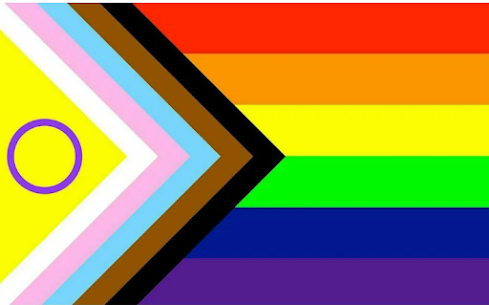Pride Month Series: Queering Interfaith Work in Three Easy Words (or More) | By Pauli Reese
This Pride Month, Interfaith Philadelphia staff and board members who identify as part of the LGBTQIA+ community are sharing their experiences at the intersections of faith and sexuality. This blog post is part of a series of stories that will be shared throughout the month of June.
What sort of attitudes and behaviors do I need to practice to build meaningful connections across lines of difference? In my work with the Crafting Community Project, I spend a lot of time thinking about this question, then finding concrete action steps to enact it.
One of the identities that I claim that nearly always acts as a line of difference that needs to be crossed in service of this work is being transgender non-binary. This language acknowledges the reality that the societal norms that we are socialized into as children on the basis of our physical anatomy are not ones that fit my understanding of myself.
I remember the very first time I used non-binary pronouns to describe myself. I was sitting in a small classroom in divinity school, where I felt safe enough among colleagues to take a risk and act boldly, even when the action was as seemingly simple as responding to a small question: What pronouns do you use?
This is the work that organizations, faith communities, and individuals who are aspiring to interfaith collaboration are acknowledging that they are committed to doing: creating spaces that are physically and psychologically safe enough to have interactions with each other that place the squishy, vulnerable bits of ourselves at the center, rather than at the margins. This makes them front and center rather than obscured behind the velvet rope of vagueness, power imbalances, or untruths — be any of these things intentional or not.
Returning to my classroom, I remember the change of energy when I sat up, closed my eyes, and through tiny waves of anxiety and gritted teeth uttered the words “they and them.” While divinity students tend to be particularly well-trained at avoiding the obvious tells of discomfort like the eye roll or the even more taboo audible sigh, the feeling that all the oxygen suddenly draining from the room was palpable.
Given that one of the effects of interfaith work is, naturally, a disruption of the established order among faith traditions that all lay claim to being the truest, best, or even exclusive connection to the Divine, perhaps one of the understated truths is that there is a certain element of queerness present by definition. So, it must be the work of interfaith voices to embrace, center, and disencumber those presences that would even “queer” it. The work of interfaith conversation must always be to go farther into its own places of discomfort to shine the light of human dignity and empathy into the corners of its very self that feel less presentable, less polished, and less loved, and bring those very squishy, vulnerable bits to its own center.
Sometimes three words muttered nervously are all that is needed to do the work; sometimes it will be considerably more. But the work of co-creating the world that interfaith work envisions is, most certainly, a queer work. That is work I am proud to contribute these words to today.
Pauli Reese is the CCP West/Southwest Philadelphia Community Organizer for Interfaith Philadelphia. The views shared here belong solely to the author, and reflect one of many experiences which exist within diverse religious traditions.



Comments
Post a Comment